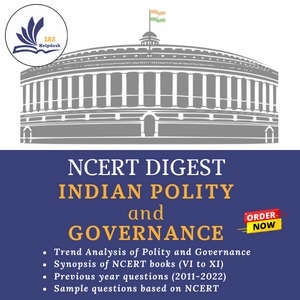Electoral Bonds
Description
Electoral Bonds
The Union government has authorised the State Bank of India to issue and encash a new tranche of electoral bonds, the 19th such parcel since the scheme’s notification in 2018. The timing of the announcement was predictable, with elections slated to be held to five different State Assemblies beginning next month. Now, as a result, voters in those States will go to the ballot box with no knowledge about the donors backing the various contestants.
Hence critically analyzing the Electoral Bond Scheme
About Electoral Bond Scheme:
• Electoral Bond would be a bearer instrument in the nature of a Promissory Note and an interest free banking instrument.
• A citizen of India or a body incorporated in India will be eligible to purchase the bond.
• Electoral Bond (s) would be issued/purchased for any value, in multiples of Rs.1,000, Rs.10,000, Rs.1,00,000, Rs.10,00,000 and Rs.1,00,00,000 from the Specified Branches of the State Bank of India (SBI).
• The purchaser would be allowed to buy Electoral Bond(s) only on due fulfilment of all the extant KYC norms and by making payment from a bank account. It will not carry the name of payee.
• Electoral Bonds would have a life of only 15 days during which it can be used for making donation only to the political parties registered under section 29A of the Representation of the Peoples Act, 1951 (43 of 1951) and which secured not less than one per cent of the votes polled in the last general election to the House of the People or a Legislative Assembly.
• The Electoral Bonds under the Scheme shall be available for purchase for a period of 10 days each in the months of January, April, July and October, as may be specified by the Central Government. An additional period of 30 days shall be specified by the Central Government in the year of the General election to the House of People.
• The Electoral Bond(s) shall be encashed by an eligible political party only through a designated bank account with the authorised bank.
Why needed?
The conventional system of political funding is to rely on donations. These donations, big or small, come from a range of sources from political workers, sympathisers, small business people and even large industrialists. The conventional practice of funding the political system was to take donations in cash and undertake these expenditures in cash. The sources are anonymous or pseudonymous.
The quantum of money was never disclosed. The present system ensures unclean money coming from unidentifiable sources. It is a wholly non-transparent system. Most political groups seem fairly satisfied with the present arrangement and would not mind this status-quo to continue. The effort, therefore, is to run down any alternative system which is devised to cleanse up the political funding mechanism.
Critical analysis
• The electoral bond scheme has envenomed the democratic process, by destroying altogether any notion of transparency in political funding.
• There is no attendant obligation on political parties to provide details to the public on each donation received by them through electoral bonds. Companies are also under no obligation to disclose the name of the party to whom they made the donation.
• Amendments have been made removing a previous prohibition that disallowed a company from donating anything more than 7.5% of its net profits over the course of the preceding three years. Similarly, a mandate that a company had to have been in existence for at least three years beforeit could make donations (a requirement that was aimed at discouraging persons from using shell corporations to funnel money into politics) was also lifted.
Thus, through its very architecture, the electoral bond scheme permits unlimited and anonymous corporate funding of political parties. In its defence, the Government says two things: one, that voters have no fundamental right to know how political parties are funded and two, that the scheme helps eliminate the role of black money in funding elections. On any reasonable examination, it ought to be clear that neither of these arguments is tenable.
First, the Supreme Court has consistently held that voters have a right to freely express themselves during an election and that they are entitled to all pieces of information that give purpose and vigour to this right. Surely, to participate in the electoral process in a meaningful manner and to choose one’s votes carefully, a citizen must know the identity of those backing the candidates.
Second, as affidavits filed by the Election Commission of India in the Supreme Court have demonstrated, the scheme, if anything, augments the potential role of black money in elections — it does so by, among other things, removing existing barriers against shell entities and dying concerns from donating to political parties.
Moreover, even if the bonds were meant to eliminate the presence of unaccounted currency, it is difficult to see what nexus the decision to provide complete anonymity of the donor bears to this objective. Indeed, it is for this reason that the Reserve Bank of India reportedly advised the Government against the scheme’s introduction.

